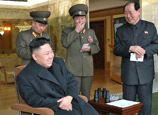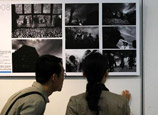
But bottlenecks in availability and fueling station scarcity
Responding to rising fuel prices and pollution, more cars in China are converting to natural gas, yet current market conditions are a barrier to widespread use.
Last month in Hefei, capital of Anhui province, the local traffic administration held a lottery to select 3,000 cars - mostly privately owned - from more than 6,000 owners who want to use natural gas as an alternative fuel.
According to local media reports, the retrofit will be done by four authorized companies, with each car requiring about four hours of work at a cost of 4,000 to 6,000 yuan.
It is the first time Hefei has allowed private car owners to add equipment including a natural gas tank to their conventional vehicle to run on dual fuels. The local government said it plans to offer further quotas this year pending the results of the first batch.
Starting next month, car owners in Shaanxi province will also get the green light to covert their vehicles.
Cost is the biggest motivation to covert to gas, analysts said.
On Feb 25, pump prices were raised for the first time this year as gasoline went up 300 yuan per ton and diesel increased 290 yuan. In many cities, it means that the gasoline is back above 8 yuan a liter.
In comparison, the price for natural gas is between 2 to 4 yuan per cubic meter in most parts of China. The same mileage fueled by natural gas costs less than half that of gasoline.
Despite the pioneering efforts in Anhui and Shaanxi, conversion of private cars is not permitted in many other places in China. But taxis and buses started using natural gas much earlier and are now common in some cities.
According to Chinese media reports, more than 90 percent of the taxis in Wuhan, Hubei province now use natural gas. In Changsha, Hunan province, a third of the buses and half of the taxis are running on the cleaner fuel. It takes only a few months for the taxis to cover the initial costs of conversion.
 |
















 Over 900 dead pigs found floating in Shanghai river
Over 900 dead pigs found floating in Shanghai river


![]()
